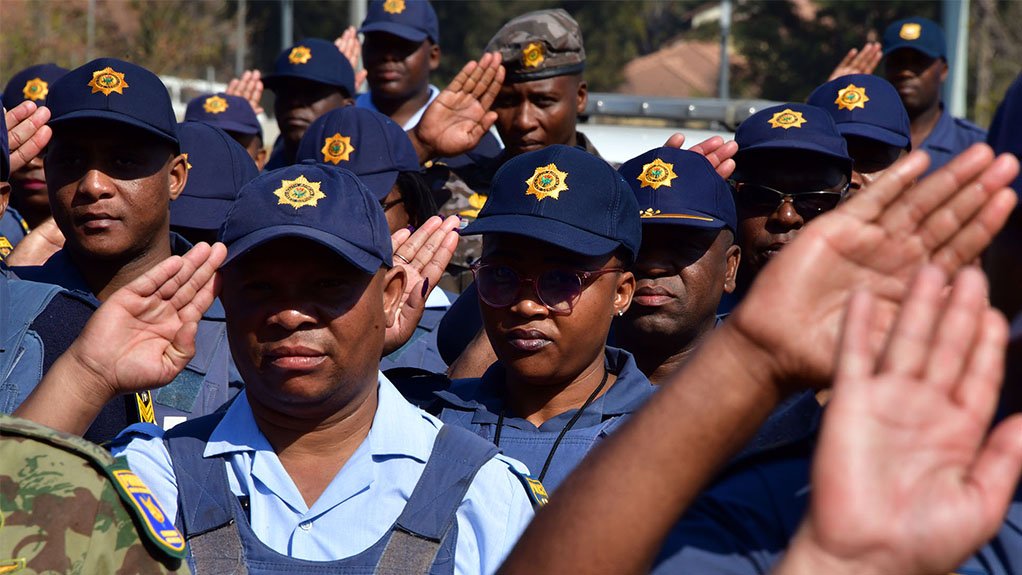The murder rate in South Africa has reached its highest mark in 20 years, with police powerless to arrest the rising tide of death.
A report released by the Institute for Security Studies (ISS) this week painted a bleak picture, showing a steady climb in the murder rate over the past decade to an apex of 45 per 100 000 in the last year.
Four provinces: KwaZulu-Natal, Gauteng, Western Cape and Eastern Cape accounted for 83% of murders recorded across the country.
Police crime statistics indicate that more than 27 000 South Africans were slain between April 2022 and March 2023.
In 2011/2012, 15 554 murders were recorded, a number which soared to 27 494 in the last year – pointing to a 77% rise.
The study underscores the failure of the police – under the leadership of Police Minister Bheki Cele - to fulfil its constitutional mandate to prevent, combat and investigate crime. Moreover, it pushes a key metric of Cele's performance contract, of reducing contact crime by 30% over five years, further out of reach.
As the murder rate rises, the police's ability to solve and convict perpetrators has plummeted to the point where only one in 10 murder cases results in a successful prosecution.
Experts said South Africa's policing strategy was misguided and ineffective – with its approach to combatting crime destined to fail.
The report, using police statistics authored by independent researcher David Bruce, indicated that the four hotspot provinces, which comprised 68% of the national population in 2022, also accounted for 83% of the reported murders.
Killing hotspots
In terms of specific provinces, the Eastern Cape and the Western Cape had the highest murder rates in 2019/2020, with 59.5 and 58 per 100 000, respectively.
During the lockdown year of 2020/2021, both provinces had murder rates of 55.7.
However, the Eastern Cape's murder rate increased significantly to 66 in 2021/2022 and further to 71 in 2022/2023.
In the same year, KwaZulu-Natal and the Western Cape jointly held the second-highest annual murder rate at 56 per 100 000.
This marks a substantial increase for KwaZulu-Natal compared to its rate of 43 per 100 000 in 2019/2020, while the Western Cape's rate has shown a slight decrease.
Gauteng, with a per-capita rate of 35 in 2021/2022 and 42 in 2022/2023, has the fourth-highest rate.
Although lower than the other three provinces, Gauteng has experienced a 40% increase from its rate of 30 in 2019/2020.
The per-capita murder rate reached 45 per 100 000, which is 52.5% higher than the lowest point in South Africa's democratic history.
The cost of murder
KwaZulu-Natal
On February 10, rapper Kiernan Forbes, popularly known as AKA, and Tebello "Tibz" Motsoane, were gunned down outside the popular Durban restaurant. CCTV footage showed a person running up to the pair and unleashing a hail of bullets. Both died at the scene. This case has not been solved.
Eastern Cape
In October, 89-year-old Sophie Erasmus was found bludgeoned to death in her home in West End, Gqeberha. The widow's body was found in a pool of blood atop a coffee table. Her hands and feet had been bound and her face was covered. This case has not been solved.
Gauteng
In March, high-profile liquidators Cloete Murray and his son, Thomas, were gunned down while travelling on the N1, near Midrand, Johannesburg. A vehicle had pulled up alongside theirs while on the freeway and peppered it with bullets. Thomas died instantly while Cloete succumbed to his injuries in hospital. This case has not been solved.
Western Cape
In May, the leafy suburb of Constantia was rocked by massacre in which Bulgarian fugitive Kamenov Krasimir Nikolaev and three others were slain. Gunmen burst through their perimeter gate and police found four bodies which had gunshot wounds. This case has not been solved.
Hapless and hopeless
The report emphasises the need for a new approach, urging serious commitment and a better understanding of the trends, patterns and factors driving murders in South Africa.
Improved information and analysis are deemed essential for developing effective murder reduction strategies, the authors said.
Bruce told News24, "The report is important... murder has been steadily increasing in SA in the past 11 years and, at the moment, there is no appropriate response from the government and there is no clear acknowledgement that there is a problem with murder."
"One simple point, in order for the government to effectively respond, they need to understand what is contributing to these increases and it's clear they do not understand what is shaping these increases.
"They haven't made sufficient investment in the need to clearly understand the factors contributing to murder. Their approach to addressing crime does not give emphasis to clearly understanding the crime situation," Bruce added.
Gareth Newham, the head of justice and violence prevention at the ISS, said rather than large-scale, high-visibility policing operations, which have failed to reduce crime for more than a decade, a different strategic approach was required.
"Ideally, specific police commanders in high-murder areas should be provided with the appropriate resources and tasked with establishing partnerships to implement practical, evidence-based interventions with measurable objectives," he said.
In May this year, Cele announced that 12 000 new officers would join SAPS during the 2023/2024 reporting period, and R5.7-billion was set aside for recruitment to maintain police staff numbers at 179 502. The number of recruits would increase annually, Cele added, to get 30 000 new officers by 2026.
In 2020, Cele agreed to a performance target to reduce contact crime, which included murder, by 30% in five years.
This was set out in a performance agreement signed by the minister and President Cyril Ramaphosa, which outlined the performance goals.
Despite the ambitious contact crime reduction target, the incidence of murder, which is arguably the most egregious form of contact crime, has been moving in the opposite direction.
EMAIL THIS ARTICLE SAVE THIS ARTICLE
To subscribe email subscriptions@creamermedia.co.za or click here
To advertise email advertising@creamermedia.co.za or click here











